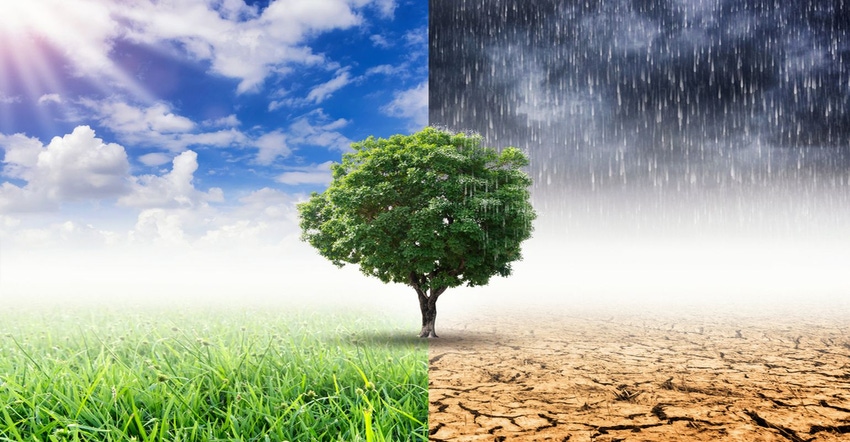USFRA docudrama articulates challenge farmers face while embracing opportunity to meet increasing demands for food.
August 16, 2019

Despite uncertain economic times, farmers are front and center as the agents for change in "30 Harvests," a new short film unveiled by the U.S. Farmers & Ranchers Alliance (USFRA) that highlights the urgency in the fight against climate change.
“The next 30 years are the most important in the history of agriculture. Food production will need to increase by 70% to feed the world by 2050," USFRA chief executive officer Erin Fitzgerald said. "How do we nourish a growing population while our farmable land is shrinking? 'Thirty Harvests' captures the passion and hope that our farmers have in providing a dependable source of healthy food while addressing economic and environmental concerns for current and future generations."
The docudrama follows the plight of farmer Jay Hill of Dell City, Texas, and farmer and soil scientist Meagan Kaiser of Bowling Green, Mo. In the short film, they articulate the challenge farmers face while embracing the opportunity to meet the increasing demands for food and, ultimately, help solve one of the greatest challenges of this generation: climate change.
"As farmers, we need to let the world know that we're on the front lines of climate change," Hill said. "If you think that we're not scared of a changing environment, then you've got it wrong."
Thirty harvests represents the quantity of crop cycles left before 2050, the year the global population is expected to be 9 billion people. According to the American Farmland Trust, the U.S. loses 175 acres of farmland every hour, mostly to urban encroachment.
Additionally, the U.S. Global Change Research Program reported that the effects of climate change are already being felt, with increases in average temperature, extreme heat conditions, heavy rainfall, droughts and extreme weather events contributing to excessive runoff, flooding and soil erosion, loss of soil carbon and reductions in the availability and quality of water.
However, agricultural soils have the capacity to capture and store carbon, making every acre of farmland more important than most ever believed and putting farmers and ranchers in a position to be the change makers.
Kaiser said, "'30 Harvests' is just one story. There are hundreds -- thousands -- of other stories about how farmers are continually innovating and evolving with climate smart agricultural practices, even in a tough economic environment."
USFRA is convening leaders in the agriculture and food value chain to create a strategic roadmap to meet the challenges of the next decade of nourishing an unprecedented population count while enhancing the environment on which we all rely and benefit from.
"This is a call to leaders in food, finance and science to be part of the solution to co-create sustainable food systems with U.S. farmers and ranchers," Fitzgerald said. "We're starting with climate change and how we can pull down carbon on our farms. Our hope is that, one day soon, we can be the first sector in our country that is carbon neutral and, over time, helping offset for other sectors."
USFRA's "30 Harvests" film is available to view at https://youtu.be/LN21LAaaOks.
You May Also Like

.png?width=300&auto=webp&quality=80&disable=upscale)

